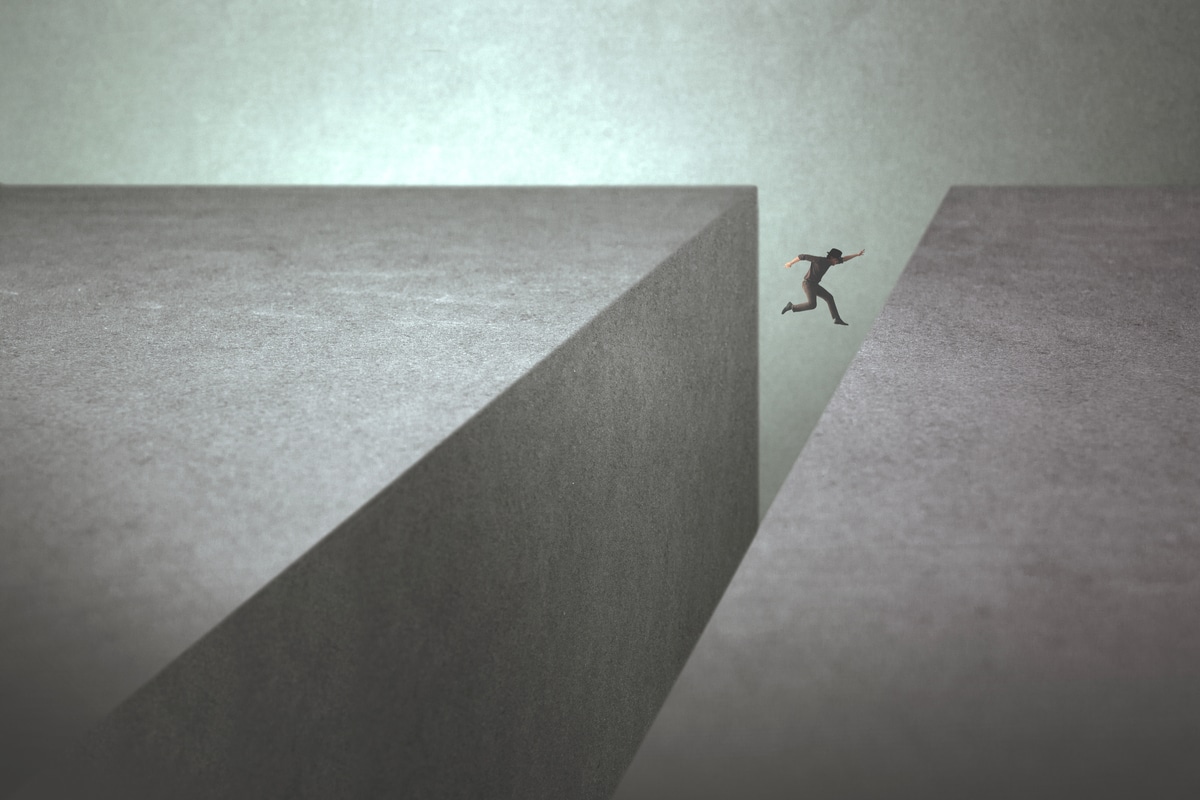Sometimes giving up is the strong thing
Taylor Swift – “it’s time to go”
Sometimes to run is the brave thing
Sometimes walking out is the one thing
That will find you the right thing
We all know that change is inevitable. In life, we are in a constant state of impermanence. As time moves forward, we experience cycles of growth, evolution, and loss. Accordingly, it’s perfectly natural to move on from relationships that no longer serve our purpose in life.
And yet, one of the fundamental reasons we suffer is because we’re unable to accept change. We get stuck in relationships that force us to compromise our ideals. We cling to the status quo, and struggle to move into a better self. This resistance can lead to a recurring struggle – akin to a game of whack-a-mole – where we constantly find ourselves in a state of discontent, knowing that we’re living a compromised life, fighting against ourselves and even the things we love.
But how do we untangle ourselves from the binds that hold us in place? And how do we shed the shackles that keep us from generating a better self and a more complete, satisfying life?
If you’re feeling unsure about whether or not to stay in a relationship with a romantic partner, family member, friend, co-worker, physical place, artistic impulse, career, or even a perception of yourself, here are 5 signs that it may be time for you to move on for the sake of a higher purpose.
How Do You Know When It Is Time To Move On From A Relationship?
1. Your Values Aren’t Aligned
The best relationships are founded on mindful values. If you don’t have a sense of your values, you will be moved around by your nervous system, responding to fleeting phenomena with fleeting sensations, like an animal. But if you have a clear picture of your priorities and purpose in life, then you can examine a relationship in that context. Once you have that foundation, you can step back and ask yourself: Does this relationship serve my values? Do we want the same things in life? And are we moving towards those shared values together?
2. You’re Giving More Than You’re Getting Back
Relationships are not a quid pro quo situation. There is no mathematical equation that tells us how many hours a week to tend to a loved one or invest in a pursuit; and there is no formula for how much support we should receive in return. As relationships fluctuate, so too will the balance of care. If a loved one gets sick, we do not expect them to care for us as much as we care for them. A mother would never demand that her newborn feed her. There are myriad natural phases in which one member in a relationship may need more than the other, and their partner is there to bolster them in their time of need.
At the same time, we cannot consistently deplete our spirit to nourish someone or something that gives us little in return. Because to do so betrays the principle of love as much as it would if we failed to take care of our child—the principle of love for ourselves. A mother’s love for her child is governed as much by knowing that loving and caring for a helpless being is the right thing to do. So, as much as she loves the child because it’s her own, a mother also loves her child because the child is a helpless being who would die without the mother’s love. In either case—whether we betray the love we have for our child, or the love we have for ourselves, we betray the principle of love.
A good principle to live by is one in which, in living it for another, we benefit ourselves and vice versa. In a healthy relationship, in caring for another, we’re also caring for ourselves, and in caring for ourselves, we’re caring for another. This sort of selflessness can give us confidence in the power of good principles to sustain and nourish life without conflict and burnout. Whenever we give of ourselves in a one-sided way, in an egoistic attempt to gain admiration, respect, worth, or love – instead of out of an impulse to nurture the people and pursuits that give us meaning – then we drain our energy and sabotage ourselves. So ask yourself: why am I giving of myself, what is my motive, my purpose, and the principle by which I live, and what is the effect of living the way I do—on myself and on others?
3. You Feel Less Creative, Optimistic, And Hopeful
A good relationship can elevate our existence. It’s easier to face difficulties with a good, reliable, caring companion. When a relationship is working, it feels like a collaboration, where we are moving in unison towards a steady present and an even brighter future based on a shared ideal.
But when a relationship has run its course, it can corrupt our psyche and spirit, and end up betraying our dreams and ideals—causing us to be less of who and what we really are. Maybe you’re stuck in a cubicle, performing menial tasks that make you feel numb. Perhaps you’re trying to earn the approval of a parent who diminishes you and your pursuits at every turn. Or maybe you find yourself chasing a dream that no longer has meaning for you. In these instances, your outlook feels dimmer. There is a nagging voice in your head, a knot in your gut, and a lid on your potential because you’ve lost your way and somehow betrayed your ideal.
The fear of insecurity, loneliness, or failure can keep you rooted in place. These are valid concerns, but you can’t let them cloud your judgment and hijack your perspective. While honoring these fears, can you simultaneously imagine a world in which you are free from this relationship? When the doubt creeps in, notice it, and then remember what is meaningful and important about achieving your dream. Listen for a different voice in your head – one that says. “Not only can you survive without this relationship, you and your ideal can thrive. And more people on earth will be better off for it.” Now, ask yourself: If there were no limitations on your potential, would you remain in this relationship, in this job, in this city, mindset, or way of life?
4. You Can’t Have Open And Honest Communication
In any relationship, circumstances will change over time. Realignment requires open and honest communication about shared values— what kind of life do you want to live together and why. You should give yourself a lot of time for such a discussion in a pleasant place, because nothing is more important. Expressing one’s purpose and having that purpose be heard, seen, and respected is essential as we weather all of the unexpected elements life throws at us. But if we are incapable of meaningful dialogue about our purpose and the kind of life we want to live, then we will simply continue to repeat the same mindless patterns of living. We need to express our purpose, our ideals, and check in to see the extent to which those ideals are being realized. In doing so, we assess whether our relationships continue to support, nourish, and encourage those ideals and the kind of life we want to live.
Invite yourself to listen deeply and echo back the perspective you hear from your partner, as if it was your own. In turn, challenge yourself to be fully honest. Then ask yourself: can I share my truest beliefs safely, do I feel truly heard when I do, and can I offer that same openness and support in return?
5. They’re Wasting Your Time
Our time is finite. We have only a brief moment in history. When we step back and reflect on this ticking clock, each moment becomes more precious. A relationship is at its best when it is one of continued virtue and meaning. Simply put: a relationship is good when it brings good content to your time—when it makes your life more meaningful and brighter.
Author Annie Dillard said, “how we spend our days is how we spend our life.” A relationship may have held great meaning at one point in time, but as you continue to pass your days, it’s essential to contemplate whether it still does. There is no time like the present to improve the quality of your life. Ask yourself: Is this relationship worth the valuable time and space that it’s taking up?
How Do You Truly Let Someone Go?
Fortunately, there are tools that enable us to step back and examine our lives: wisdom, study, and contemplation. After meaningful reflection, we can relinquish the illusion of control and move forward with integrity. These tools embolden us to step outside of the melee so we can move through life with more ease and purpose. Moving on from a relationship can feel like a great loss, but it’s essential to remember that death is always followed by new life. Once you have a clear sense of your values, you can determine what you are moving towards. In order to clarify these values, it can help to seek support from a trusted friend, family member, coach, and maybe even Taylor Swift who sings, “you know in your soul when it’s time to go…then you go, you just go.”













